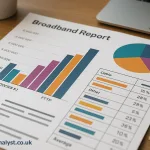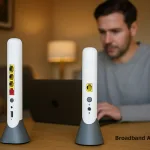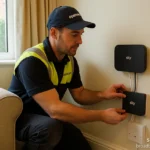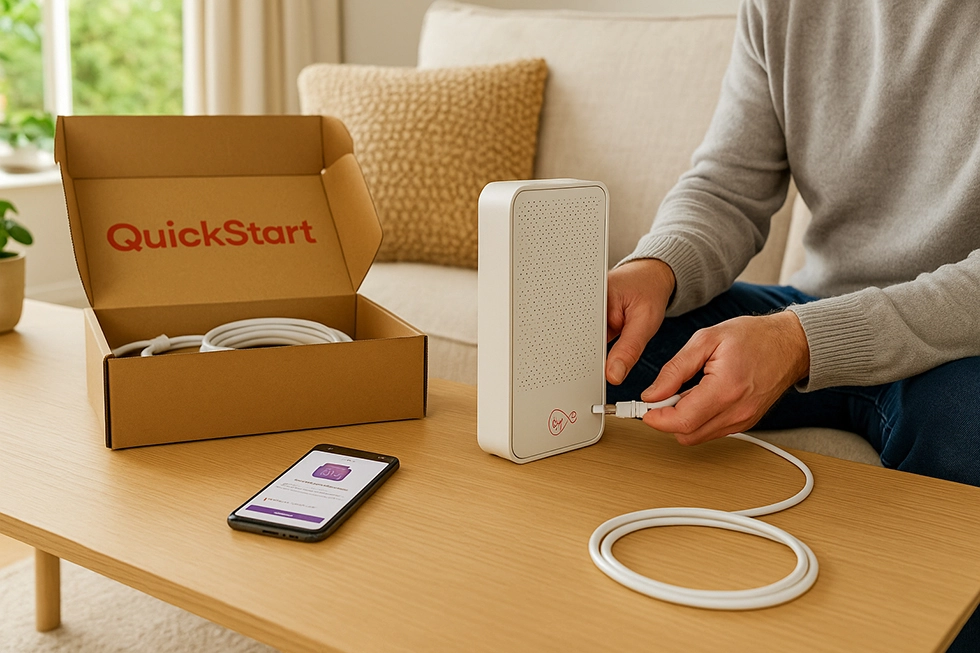Community Fibre has shortened its Satisfaction Guarantee for new broadband customers from 60 days to 30 days. The policy still allows customers to leave their contract without early-exit fees if the service fails to meet expectations and the provider cannot resolve the problem within that period.
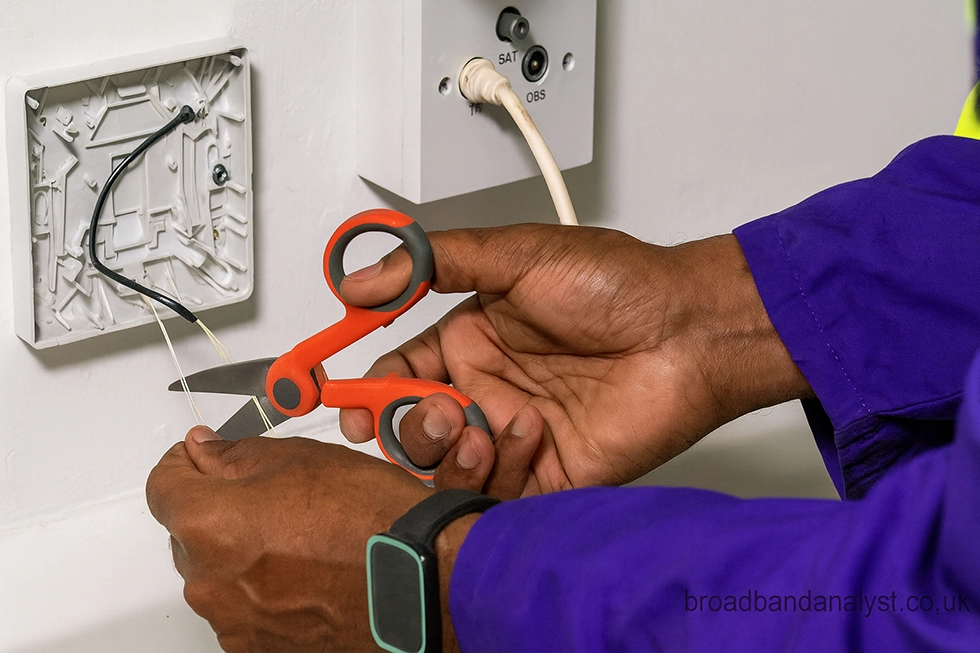
Under the revised terms, customers who cancel will not be refunded for charges already paid, but they will avoid penalties for ending the agreement early. The provider says most issues are reported and resolved within the first few days, so a 30-day window remains sufficient.
What is a Broadband Satisfaction Guarantee?
A broadband “satisfaction guarantee” is a voluntary promise made by some internet providers that goes beyond the statutory 14-day cooling-off period available under UK consumer law.
It gives new customers additional time — typically 30 days or more — to try the service and leave without penalty if it isn’t working as expected. Unlike standard cooling-off rights, these guarantees are usually tied to service performance or technical issues rather than simply changing your mind. Refunds are not always offered, but the main benefit is freedom from long contract obligations if the service disappoints.
Which UK Providers Offer Satisfaction Guarantees?
Only a small number of broadband providers currently advertise clear satisfaction guarantees. Terms vary by provider:
- Community Fibre – 30-day Satisfaction Guarantee. Customers can cancel penalty-free within the first month if problems cannot be fixed. No refund of fees already paid.
- G.Network – Up to 3-month guarantee. Customers can leave in the first three months without exit fees, though 30-days’ notice is normally required and some promotional tariffs are excluded.
- TalkTalk – Great Connection Guarantee offering a 30-day exit option if the service does not meet expectations after go-live.
- Hyperoptic – 30-day trial. New sign-ups can leave without exit fees during the first month if dissatisfied.
- BeFibre – “Be Guarantee” gives 30 days to cancel without penalty if issues remain unresolved.
- Quickline – 30-day money-back guarantee. Customers can cancel within a month and receive a full refund if not satisfied.
- Three (Home Broadband, 4G/5G) – 30-day money-back guarantee. Customers on eligible home broadband plans can return the service within a month for a refund.
Related but different policies
- BT – Offers a Stay Fast Guarantee linked to speed. If BT cannot restore speeds to your personal minimum within 30 days of a fault being reported, you can claim £20 and leave without fees.
- Sky – Provides a Speed Guarantee and a Wall-to-Wall Wi-Fi Guarantee that refund one month’s fee if minimum conditions aren’t met.
- Vodafone – Previously ran a 30-day Service Guarantee, later cut to 14 days in 2019. No equivalent satisfaction guarantee is currently advertised, though standard cooling-off rules still apply.
- Fibrus – Offers a Total Home Wi-Fi Guarantee. If they cannot deliver at least 10Mbps in every eligible room, customers can leave penalty-free within 30 days after the last remedial visit.
- Gigaclear, Plusnet, EE, Zzoomm, Trooli – Do not currently market any broad “try-us” satisfaction window. Customers rely on the standard 14-day cancellation rights and Ofcom’s compensation/speed schemes.
How New Customers Can Take Advantage
Customers considering broadband with a satisfaction guarantee should:
- Check eligibility – Guarantees usually apply only to new residential sign-ups.
- Report problems early – Providers often expect you to flag issues quickly so they can attempt a fix.
- Follow notice rules – Some, like G.Network, require formal notice even when using the guarantee.
- Understand refunds – Most providers waive exit fees but do not refund payments already made, except for Quickline and Three which advertise money-back.
By paying attention to these terms, households can test broadband with minimal financial risk.
What Ofcom Says
Ofcom requires all providers to offer a minimum 14-day cooling-off period under UK consumer law. It also enforces the Voluntary Code of Practice on Broadband Speeds, which compels major ISPs to set a personalised minimum speed and let customers leave contracts without penalty if speeds consistently fall below that threshold.
Satisfaction guarantees are additional commitments beyond Ofcom’s requirements. They give consumers more flexibility and encourage providers to fix faults quickly rather than risk losing customers early.
